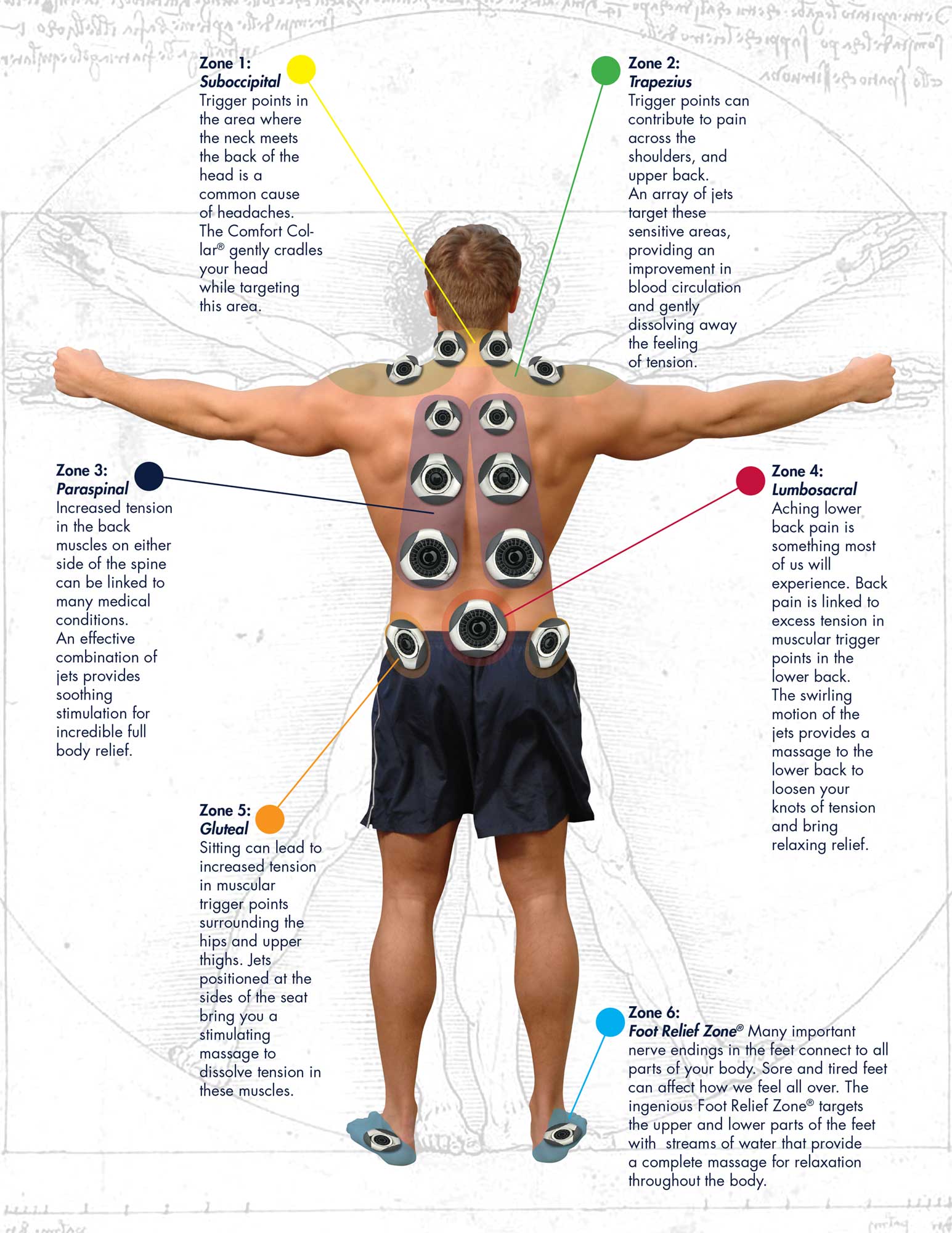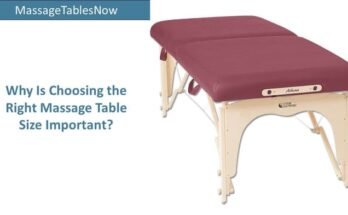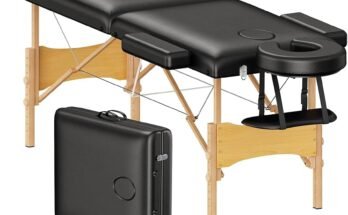Yes, excessive or intense massage can potentially weaken your muscles. Too much pressure or excessive deep tissue massage can cause muscle damage and weakness.
However, when performed by a qualified and experienced therapist, massage can improve muscle flexibility and reduce tension. It is essential to communicate your preferences and any discomfort during the massage to ensure a positive and beneficial experience. Additionally, regular, moderate massages can help improve muscle health and flexibility, leading to overall well-being.
Seeking professional guidance and understanding your body’s response to massage can help you reap its benefits while avoiding potential risks.

Credit: m.facebook.com
The Science Of Massage
The Science of Massage
How Massage Works
Massage therapy has been practiced for centuries and is based on the manipulation of soft tissues, such as muscles, tendons, and ligaments. When a massage therapist applies pressure to the body, it stimulates blood flow, increases flexibility, and reduces tension in the muscles. Additionally, massage can help to release endorphins, the body’s natural painkillers, which contribute to a sense of well-being and relaxation.
Benefits Of Massage
- Stress Relief: Regular massage sessions can reduce stress and promote overall feelings of relaxation and well-being.
- Pain Relief: Massage can alleviate muscle pain, improve flexibility, and reduce the symptoms of numerous chronic conditions.
- Improved Circulation: The pressure applied during massage can help move blood through congested areas, improving overall body function.
- Enhanced Sleep Quality: Through relaxation and stress reduction, regular massage can contribute to improved sleep patterns.
Debunking The Muscle Weakening Myth
Massage does not weaken your muscles. In fact, it can provide various benefits like improved flexibility, reduced muscle tension, and enhanced recovery after workouts. So, put those muscle weakening myths to rest!
Origins Of The Muscle Weakening Myth
The belief that massage weakens muscles has been prevalent for years, stemming from a misconception that the pressure applied during a massage can break down muscle fibers. However, this notion is not grounded in scientific evidence. It’s important to understand the truth regarding the effects of massage on muscle strength and function.
Understanding Muscle Physiology
To understand why massage doesn’t weaken muscles, it’s essential to delve into muscle physiology. Muscles are composed of muscle fibers, and the actual process of weakening or strengthening occurs at the cellular level. When properly performed, a massage can actually enhance muscle recovery and flexibility by increasing blood flow and aiding in the removal of metabolic waste products from the muscles.
Research Evidence: Massage Does Not Weaken Muscles
Studies have shown that massage therapy does not lead to muscle weakening. In fact, research has indicated that post-exercise massage can help to reduce muscle soreness and enhance muscle function. This evidence debunks the myth that massage weakens muscles, reaffirming the benefits of massage as a supportive therapy for muscle recovery and overall well-being.
The Role Of Massage In Muscle Recovery And Repair
Massage therapy is a popular technique used to relax the body and relieve stress. But did you know that it also plays a crucial role in muscle recovery and repair? Whether you’re an athlete or simply someone who engages in regular physical activity, understanding how massage can benefit your muscles is important for optimizing your performance and preventing injury. In this article, we delve into the various ways massage helps in muscle recovery and repair, including its impact on muscle soreness, blood flow and oxygenation, and inflammation reduction.
Masage And Muscle Soreness
After an intense workout or physical activity, it’s common to experience muscle soreness. Massage therapy can effectively alleviate this discomfort by reducing muscle tension and promoting muscle relaxation. When your muscles are massaged, it helps to break down the built-up lactic acid and other metabolic waste products that contribute to muscle soreness. Additionally, the manipulation of soft tissues enhances the release of endorphins, which are natural pain-relieving chemicals produced by the body. By addressing muscle soreness, massage plays a vital role in expediting muscle recovery and restoring optimal function.
Promoting Blood Flow And Oxygenation
In order for muscles to recover and repair, they require proper blood flow and oxygenation. Massage therapy helps stimulate blood circulation, delivering nutrient-rich blood and oxygen to the muscles, thus aiding in their recovery. The kneading and stroking techniques used during a massage stimulate the dilation of blood vessels, allowing for improved blood flow to the muscles. This increase in circulation not only provides essential nutrients to the muscles but also aids in the removal of toxins and waste products. Improved blood flow and oxygenation consequently promote faster muscle repair and regeneration.
Reducing Inflammation And Enhancing Healing
Inflammation is a natural response of the body to injury or overexertion. While acute inflammation is important for initiating the healing process, chronic inflammation can impede proper muscle recovery. Massage therapy has been shown to effectively reduce inflammation by decreasing the production of pro-inflammatory cytokines and promoting the release of anti-inflammatory substances. By reducing inflammation, massage not only alleviates pain and swelling but also enhances the healing process, enabling the muscles to repair and regain their strength more efficiently.

Credit: americanwhirlpool.com
Muscle Building And Performance Enhancement
Muscle building and performance enhancements are supported by incorporating massage as a complementary approach.
Massage therapy aids in enhancing range of motion and flexibility through targeted techniques.
Massage contributes to improved muscle function and faster recovery post-exercise sessions.
Optimizing Massage For Muscle Health
Frequency And Timing
It is crucial to consider the frequency and timing of your massages to maximize muscle health benefits.
Choosing The Right Massage Techniques
Selecting appropriate massage techniques is essential for promoting muscle recovery and preventing weakness.
Combining Massage With Other Therapies
Enhance the effectiveness of massage by combining it with complementary therapies for optimal muscle health outcomes.

Credit: m.facebook.com
Frequently Asked Questions Of Can Massage Weaken Your Muscles
Why Do My Muscles Feel Weak After Massage?
Massages can temporarily weaken muscles due to increased blood flow and relaxation. This can lead to feeling fatigued or weak. However, this is a normal reaction and should improve within a day or two. It’s important to stay hydrated and avoid strenuous activities post-massage.
What Happens If You Massage A Muscle Too Much?
Massaging a muscle too much can cause overstimulation and potential damage, leading to increased pain or soreness. It’s important to listen to your body’s signals and avoid excessive pressure during massage to prevent any negative effects.
Can Hard Massage Damage Muscles?
Hard massage can potentially damage muscles if not performed properly. Applying excessive pressure and force may lead to strains, soreness, and bruising. It is essential to communicate your preferences to the massage therapist and seek their expertise to avoid any harm.
What Are The Side Effects Of Deep Tissue Massage?
Common side effects of deep tissue massage may include soreness, stiffness, bruising, or temporary discomfort. These effects are typically mild and temporary.
Conclusion
To sum up, massage therapy does not weaken muscles but rather promotes relaxation and recovery. Regular massages can alleviate muscle tension, improve flexibility, and enhance blood circulation. While soreness immediately after a massage is possible, it is temporary and should not be mistaken for muscle weakness.
Massage therapy, when performed by a skilled professional, can provide numerous benefits without causing any harm to your muscles. So, don’t hesitate to indulge in a rejuvenating massage for overall well-being.



